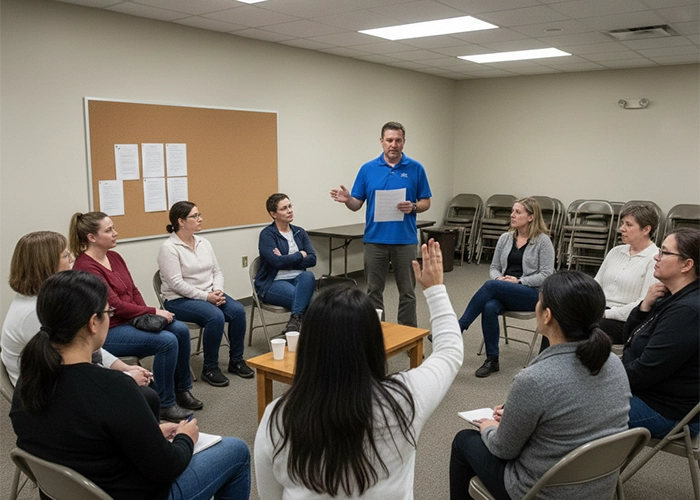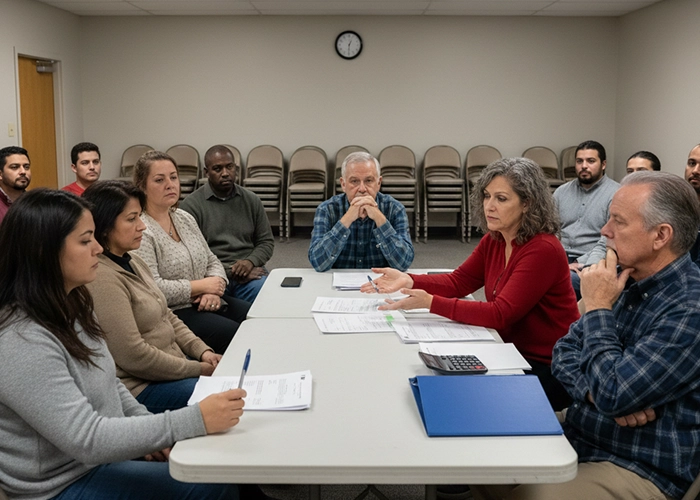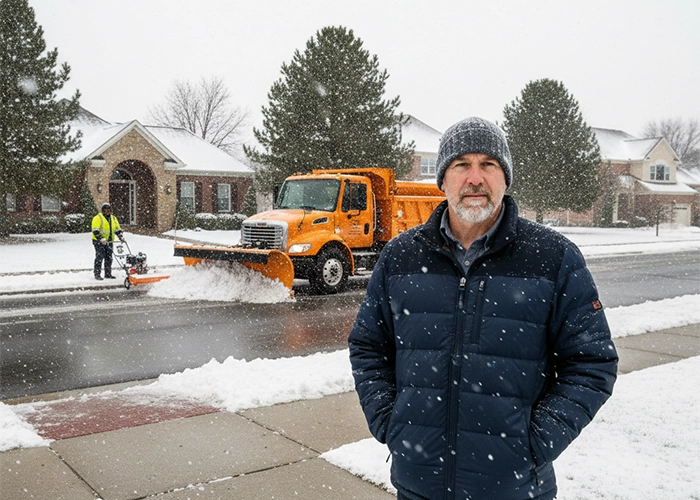Problems Of New HOA Board Members No One Talks About

It is normal to encounter problems of new HOA board members. After all, new board members, especially ones with no previous experience, are still finding their footing at the start of their terms. Understanding these problems is the first step, and soon enough, new board members can begin dealing with them.
Browse By Category
Sign up for Our Newsletter
It is normal to encounter problems of new HOA board members. After all, new board members, especially ones with no previous experience, are still finding their footing at the start of their terms. Understanding these problems is the first step, and soon enough, new board members can begin dealing with them.
Common Problems of New HOA Board Members
It is a great honor to be elected to the HOA board. Serving on the board gives homeowners a chance to contribute to the community and make a real difference. Exciting as it may be, first-time board members often grapple with a steep learning curve. They don’t always know where to begin and what to do when faced with unexpected challenges.
Here are the everyday struggles of new HOA board members and how to overcome them.
1. Information Overload

Board members deal with a lot of information. Newbies might be suddenly overwhelmed with financial reports, CC&Rs and bylaws, vendor contracts, and legal documents. Since board members must know everything about an HOA, it’s essential to understand all of this information and their implications.
How to Overcome the Problem: Break down information into manageable sections. Instead of going at it all at once, focus on learning the governing documents before following up with financial reports and contracts. Board members should also attend training sessions, ask questions, and take notes to build knowledge gradually.
2. Lack of Training/Experience
A more relatable challenge for new HOA board members is a lack of experience or training. Given the many complexities involved in HOA management, it is unsurprising for new leaders to find themselves floundering. After all, managing a community requires knowledge of financial management, legal compliance, and general options.
How to Overcome the Problem: Fortunately, there’s an obvious way to overcome this problem. New board members should look for training programs and sign up for online courses or seminars. They can also consult experienced board members and glean insight from them. When faced with tough decisions, board members can turn to legal and management professionals.
3. Time Commitment
Time commitment is another common problem for new HOA board members. Board members are volunteers, so they can’t always prioritize their HOA duties. With meetings, homeowner concerns, violations, and regulatory compliance, board members might not have enough time.
How to Overcome the Problem: Board members should prioritize tasks by setting precise schedules for meetings and responsibilities. They can delegate duties to committees and use management software to streamline tasks if possible. Hiring an HOA management company is also a good solution.
4. Maintaining Transparency and Communication

Many new board members find it hard to communicate with homeowners. Open communication and transparency are essential to building trust and minimizing misunderstandings.
How to Overcome the Problem: Keep residents informed through newsletters, email updates, and open meetings. You can even use HOA software solutions to ensure all announcements and updates reach your residents on time. Board members should also take accurate meeting minutes and allow owners to provide input at meetings.
5. Conflicting Opinions and Group Dynamics
Board members may not always agree with each other. They might have different visions for the association, which can lead to split votes or even escalating conflict.
How to Overcome the Problem: Remember to foster open discussions while prioritizing the community’s interests. Board members should always maintain professionalism and participate in respectful debates. If necessary, board members can also consult third-party professionals.
6. Understanding Legal and Financial Responsibilities
Board members are responsible for making decisions that benefit the community. They must follow the rules and handle finances wisely. They could be held personally responsible for mistakes if they don’t understand their legal and financial duties.
How to Overcome the Problem: It’s important to review the financial statements regularly. Board members should also seek professional assistance when needed.
7. Enforcing Rules and Regulations
When it comes to problems of new HOA board members, rule enforcement is up there. Board members usually struggle with this because they don’t want to be the bad guys and levy fines on their neighbors. It also requires a great deal of tact and an in-depth understanding of the governing documents.
How to Overcome the Problem: Board members should remember that rule enforcement is part of their job. It keeps the HOA in good order and protects property values. When enforcing the rules, they should do so in a fair and consistent manner. They should follow the enforcement procedures outlined in their governing documents.
8. Dealing with Difficult Residents

In every community, disagreements are bound to happen among residents. People have conflicting viewpoints and opinions, which can lead to disputes. Homeowners can also complain about the rules and how they are enforced. Dealing with these things can come as a challenge to newbies.
How to Overcome the Problem: First, stay calm and professional. Board members must listen actively, acknowledge concerns, and refer to the governing documents for a resolution. Instead of using personal conversations, board members should set boundaries and communicate via official HOA channels.
9. Vendor Management
Vendor selection and management require a fair bit of work. Board members must exercise due diligence and negotiate contracts skillfully to protect the interests of the association. This is not always easy, especially for inexperienced leaders.
How to Overcome the Problem: Board members should obtain multiple quotes before signing contracts. Additionally, they should establish clear expectations in agreements and monitor vendor performance regularly.
10. Feeling Undervalued and Underappreciated
Finally, one of the problems of new HOA board members is feeling underappreciated. Many board members give their all to their community without gaining recognition. This can cause them to feel burnt out or discouraged.
How to Overcome the Problem: First, it is important to understand that serving on the board is often a thankless job. Board members do it willingly and without expecting anything in return. To counteract this feeling, board members should focus on the positive impact they’re making. They can celebrate small wins, recognize contributions in the newsletter, and rotate responsibilities to avoid burnout.
How to Prepare and Be Effective as a New HOA Board Member
New board members can prepare themselves for the job using the following tips:
1. Understand the Governing Documents
Board members must read and familiarize themselves with the bylaws, CC&Rs, and community rules. These guide all decisions and actions.
2. Seek Mentorship

Connecting with experienced board members or past presidents can provide valuable insights. Shadowing them during meetings or inspections can help new members learn the ropes.
3. Attend Training and Educational Programs
Board members should participate in HOA management courses, workshops, or seminars from organizations like the Community Associations Institute (CAI). This can help build confidence and knowledge in legal, financial, and operational responsibilities.
4. Review Financial Records
Board members should study the HOA’s budget, financial statements, and reserve fund reports. Understanding how funds are managed helps ensure responsible financial planning and decision-making.
5. Uphold Fiduciary Duty
Board members should make all decisions in the best interest of the community.
6. Develop Strong Communication Skills
Board members should practice active listening, clear messaging, and conflict resolution. Effective communication fosters trust and cooperation within the community.
7. Set Realistic Expectations
Board members should recognize that serving on the board requires a significant time commitment.
8. Collaborate With Fellow Board Members

Board members should respect different perspectives and work together to achieve community goals.
9. Delegate Effectively
Board members should assign tasks based on individual strengths and expertise.
10. Seek Professional Advice
Board members should consult legal counsel, accountants, or HOA management professionals when necessary.
11. Prioritize Transparency and Communication
Board members should keep residents in the loop using all communication channels available to them.
12. Establish Clear Processes and Procedures
Board members should use a consistent method for handling requests, enforcing rules, and dealing with vendors.
13. Document Everything
It is important to maintain accurate and detailed records of all decisions, communications, and meetings. Doing this can help protect the HOA and the board from legal risks.
14. Remember the Board’s Purpose

The HOA board is there to serve the best interests of the community and maintain a positive environment for everyone.
15. Practice Self-Care
Board members are not robots; they should define boundaries to protect their personal time and avoid burnout. Don’t be afraid to ask for help.
The Final Word
Handling the many problems of new HOA board members can come as quite a challenge. Board members can overcome these problems as long as they are open to learning, willing to serve, and ready to put the work in.
Having an HOA management company can make a world of difference, too. Start looking for the best one in your area using our online directory!
RELATED ARTICLES:
- Possible HOA Board Conflict Of Interest Issues And How To Handle Them
- How To Welcome New Board Members In The HOA And Helpful Tips
- Can An HOA Ban Pets? What Your State Laws Say
Trending Now
Related Article
Sign up for Our Monthly Newsletter
Sign up below for monthly updates on all HOA Resource















